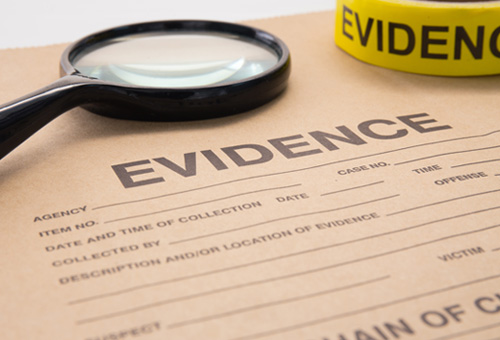


Learn how to objectively investigate child death cases, particularly when the cause and manner of death is unexplained. Examine investigative mindset from initial call-out to case resolution and learn how to gain an understanding of what happens with a victim-centered approach, exploring the emotional trauma of the non-offending caregiver. Discuss possible causes of death and best practices and tips including various investigative steps for evidence collection, witness and suspect interviews. This basic course offers law enforcement, CPS, and other child death investigators up-to-date practices for the investigation of child deaths.

This 12-hour course includes a 2-hour self-paced training orientation, 8 hours of live instruction and up to 2 hours coaching/open office hours. Gain awareness about drug-endangered children and understand the opportunities to identify children at risk. Learn how to implement the DEC approach, uniting multiple agencies and disciplines around the common goal of improving outcomes for drug endangered children. Discuss the risks to children growing up in households where opioids, stimulants, marijuana or other drugs are misused. Discover the intersection between drug endangered children and human trafficking.

The Internet of Things (IoT) involves a web of data which requires planning to access and manage. During this training, we will explore devices and their connected systems, to understand how they create valuable evidence and could have significance at crime scenes. Examination through live demonstrations on how to retrieve and review the data, identify applicable Fourth Amendment concepts, and apply them to build a legally defensible and ethical case will be discussed.

Child Sex Trafficking (CST) is a crime that is hidden yet in plain sight. First responders are often the first system members to make contact with a CST victim. A CST victim has been heavily groomed for system contact, is fearful of their trafficker, and often not forthcoming about their exploitive situation. Deconstruct the crime of CST and identify common scenarios in which you may come in contact with a CST victim. Discover victim-centered contact practices you can implement which are specific to CST victims. Recognize how to secure vital evidence which may only be available during your initial contact with the victim. Practice group exercises and develop contact and response plans to common scenarios you may encounter.

Learn basic techniques and strategies to enhance the likelihood of obtaining information from possible victims of child sex trafficking. Compare and contrast typical child sexual abuse cases with child sex trafficking (CST) cases and address the different points of entry into the criminal justice and welfare system for CST victims. Understand various disciplines' roles and responsibilities and how they can contribute to a positive outcome of the CST case. Examine question strategy, interview dynamics, language use, and interview suggestions. Discuss the business model of child sex trafficking as it relates to a variety of crimes, including the use of child sexual abuse material (CSAM).

As the Internet of Things (IoT) becomes ubiquitous in our everyday lives there are privacy and security concerns that citizens should be aware of. This training will provide an overview of IoT and will teach law enforcement officials methods to engage with their communities to provide information about IoT privacy and security. Steps that community members can take to be safer with these devices, and effective teaching strategies regarding prevention will be covered.

In the initial response to endangered missing or child abduction incidents, accurate and timely situational assessments and immediate resource deployment are critical. During this training, first responders will gain knowledge of the investigative activities that occur during an endangered missing or child abduction investigation, and how their actions influence the short- and long-term response of law enforcement. Learn the impact the missing and or abducted child incident has on the family and how this can impact your response. Examine the critical and necessary first steps for first responders, initial supervisory, and investigative response. Gain best practices strategies for search and canvass implementation.

Explore the challenges involved with no body homicide investigations. Most start as missing persons cases; the suspect’s head start coupled with the absence of the victim’s body leaves gaping holes in the investigation. Join us to hear from experienced instructors as they provide the framework and tools to build a prosecutable circumstantial case—regardless of the age of the case—from proving the victim is dead using established practices such as victimology, interviews, documents/records/digital footprint to search strategies and best practices in documentation. This training will also provide established prosecution strategies that maximize the likelihood of success. During instruction, there will be an opportunity to share your case as a class participation case study exercise.

Develop the ability to assess the behavioral elements of a child's disappearance in relation to abductor profiles. Analyze the typical traits, motivations, and behaviors of non-familial child abductors. By applying general knowledge of these behavioral patterns along with circumstances of the abduction, better direct your investigations towards the likely suspect profile. This method is designed to construct a profile of an unknown offender and, in cases with suspects, to focus the investigation on the most likely offender.

Examine the importance of multidisciplinary team (MDT) case coordination and evidence corroboration in the investigation of child abuse cases. Various members of the Multidisciplinary Team, such as law enforcement, child protective services, and forensic interviewers may gather different or differing information. Learn how to evaluate evidentiary findings through crime scene images, interviews and case studies. Understand multidisciplinary team members' roles and responsibilities for protecting child victims and prosecuting offenders. Focus on offenders’ use of technology, including the use of child sexual abuse material (CSAM) in grooming and manipulation. Discuss a variety of technology that can be used by investigators.
